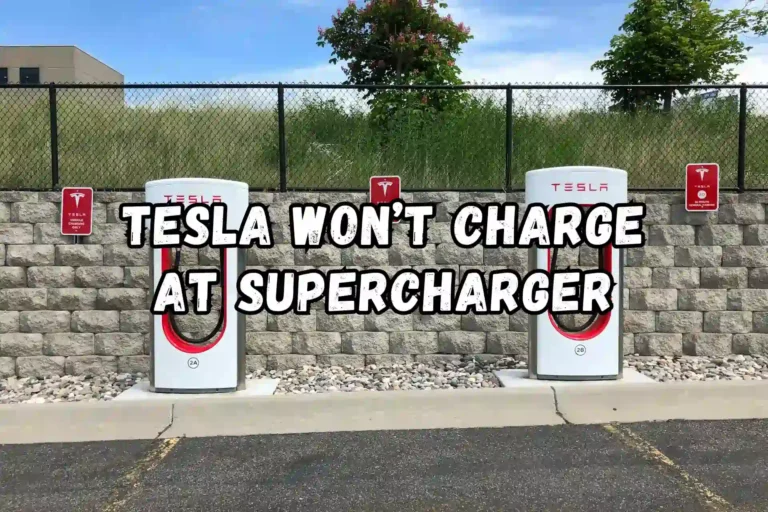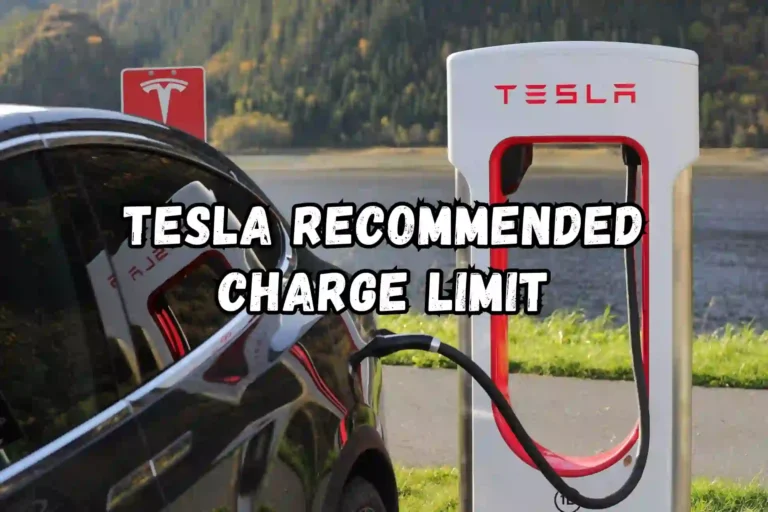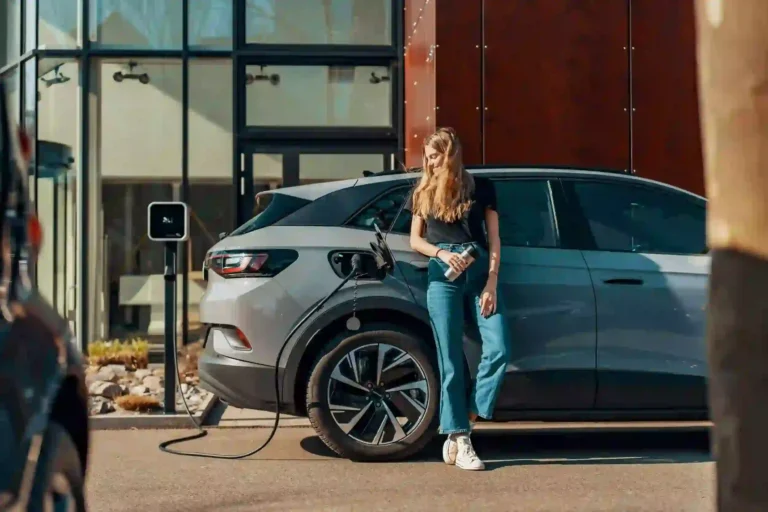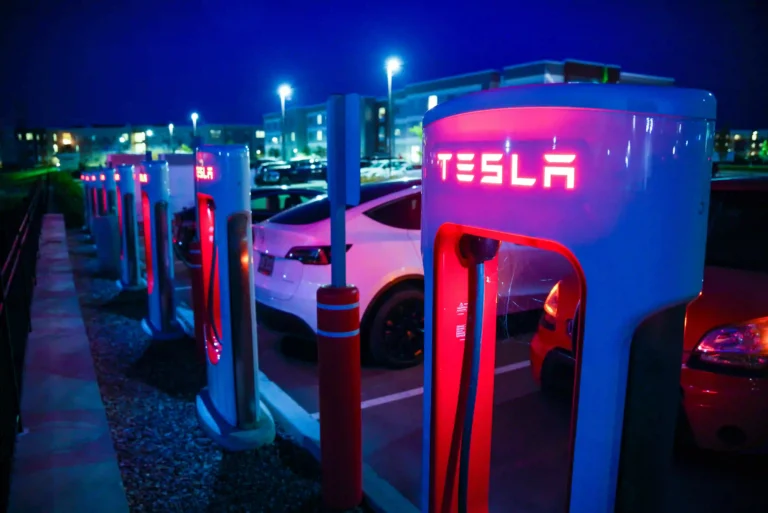Globally, electric vehicles (EVs) are on the rise, as is their charging infrastructure. Approximately 2.80 million charging stations will be available worldwide by 2027, with 16.21 million electric vehicles on the road. According to another IEA report, approximately 89% of EV charging stations worldwide are private, in homes and offices.
Let’s suppose you bring home a Tesla, but how will you charge it?
Many Tesla owners rely on public chargers, chargers at work, or chargers installed at home. Chargers can be dedicated Tesla chargers or dryer plug-in chargers.
Home chargers are becoming increasingly important with the rise of battery-powered cars. As a result, you will be able to charge the car whenever you want. How much to install Tesla charger at your home?
We have therefore created this blog to discuss different Tesla home charger options in order to answer this question.
What Are The Tesla Home Charging Options?

Depending on the installation requirements, Tesla home charger installation costs can range from $750 to $1500. Tesla Model S, Model X, and Model 3 electric cars can be charged by three different chargers. Let’s take a closer look at them.
Tesla Level 1 (120V outlet)
The most basic “Level 1” charging option should be at the top. Plugging your electric vehicle into a standard 120V outlet, such as one for a computer, TV, or lamp, is one option. The setup cost is zero since there is no additional installation required.
In a trickle charging process, electricity is trickled into the car at a very slow rate – about 3 to 4 miles per hour. Some owners are satisfied with this level of service.
A Tesla-compatible “Level 2” charger installation or at least a 240V dryer outlet can be used to charge faster than a 120V outlet for others who need to charge quickly between drives.
Tesla Level 2 (240V Dryer Outlet)
Unlike Option #1, Option #2 requires access to a 240V outlet, such as a dryer outlet, instead of a standard 120V outlet. There is also a need for a dryer adapter, and 240V outlets have different plug types (NEMA 10-30, NEMA 14-30, NEMA 14-50) than 120V outlets.
Now that 2 million Teslas are on the road, it’s easier to find 240V outlet splitters for Tesla level 2 charging. As a result, you can add 15 to 30 miles per hour with this charger.
Tesla Level 2 Charger Installation
You can expect to pay between $1,000 and $7000 to install a Tesla fast home charger in your garage. Tesla home chargers cost $500, and installation costs $500 to $6,500, depending on home wiring and power capacity.
Regional discrepancies in pricing can explain the disparity in the total cost. Electricians may charge more in certain locations than in others.
Further, installation costs can vary based on the location and capacity of your electrical panel, as well as the wiring requirements for the electricity outlet. Expect a higher cost if a large amount of wiring is required.
The types of costs associated with installation have been discussed so far. Here are some other factors to consider while installing a Tesla fast home charger, which may increase your costs substantially.
Tesla wall connector price
Tesla wall connectors come in two types: Gen 3 and Gen 2.
£499 is the cost of a Gen 3 wall connector.
The cost of a Gen 2 wall connector ranges from £299 to £349.
It has wifi connectivity, which makes it a ‘smart charger,’ giving you more control over the charging process and sharing power. You must own a Tesla vehicle to purchase these costs, and they are for supply only.
You can also purchase a wall connector pedestal, designed for mounting Gen 2 or Gen 3 wall connectors. For $349, this is an ideal charging station for Tesla owners who need a free-standing structure. The Tesla wall connector is not eligible for the £350 Government grant for electric vehicle chargers.
Tesla wall charger installation cost

Tesla chargers typically cost around £500 to install. The figure is a guide and will vary depending on the property and the specifics of the installation. To find an electrician to install your Tesla wall connector at home, please use our request a quote feature, or use our search function, below.
Tesla supercharger price
In contrast to charging at home, Tesla superchargers can be found on the road network and are the fastest way to charge a Tesla. You may find some variance depending on your location, but Tesla charging stations on average cost 50p per kWh for monthly members (£10.99 per month) or 60p per kWh for non-members. There are more than 650 Tesla superchargers in the UK.
What Should You Consider When Hiring Residential Electrical Contractors?
In addition to hiring electricians in Calgary to install Tesla fast home chargers, there are many other factors to consider. Here are some of them.
Labor
A licensed electrician will likely have to install the charging unit in addition to the cost of the unit itself. There can be a range of labor costs depending on the modifications required for your garage.
New Circuit
Tesla wall chargers require a dedicated circuit installed by your electrician. For safety reasons, you will need to add a switch to your breaker panel. For faster charging times, you may need to upgrade your 100-amp breaker panel to a 200-amp panel, which can cost more.
NEMA Adapter
You may need an adapter ranging from $35 to $100 if you choose a non-Tesla charging station.
Cable Organizer
An organizer can keep your charging cables neat and protected from damage, even if it seems like a minor accessory. The cost of these items typically ranges from $15 to $35.
Trench
A cleaner look can be achieved by burying the charging cables in trenches. Labor and materials are additional costs, so this can be costly.
Permit
You may need a permit to install your charging station, depending on local regulations. Find out if permits are required and if they are included in the overall cost by consulting your local residential electrical contractors.
Why Should You Install A Tesla Fast Home Charger?
Installing a Tesla fast home charger has many benefits. A few of the most important ones are listed below:
Convenience
Electric cars are usually charged at prolonged rates when they are plugged into an existing outlet. In order to give Tesla owners the freedom to charge their cars whenever they want, it is recommended that they install a home charging station.
Fast charging
While some public charging outlets offer level 2 or level 3 charging, many offer level 1 charging. With the help of local electrical contractors, you can always install a charger at home to overcome this bottleneck.
High-Cost Savings
Tesla home chargers are still cheaper than those at EV charging stations, since you only have to pay once. Charges for cars are much higher during peak hours than during off-peak hours, for example. Unlike peak-time charging rates, you do not have to worry about home chargers.
Safe And Smart Charging
Tesla Home chargers feature some of the most advanced features to help you save on electricity bills. Additionally, it automatically adjusts its charging rate based on the energy available to you from your electrical system. Compared to public chargers, this is a much safer experience.
Energy Efficiency
In comparison to public chargers, these chargers are energy-efficient. Powered by solar panels, it only consumes the energy necessary to charge the vehicle. Thus, solar-generated electricity saves you money on electricity bills and is environmentally friendly.
Wrapping Up
If you plan to buy a Tesla, it is always a good idea to know what your charging options are. You can easily spend $500 to $1500 on a charging station, depending on the type. To route power to your Tesla chargers, you may need a separate electrical panel and circuit breakers.
The best way to install a Tesla charger is to hire a local residential electrical contractor who can help you do it easily.
Frequently Asked Questions
How much does it cost to install a Tesla charger at home?
There are several factors that determine the cost of installing a Tesla charger at home, including your location, electrical setup, and any additional requirements.
The average cost of installation is between $500 and $2,000. For an accurate estimate tailored to your specific needs, consult with a qualified electrician.
What factors influence the installation cost of a Tesla charger?
Installing a Tesla charger can be expensive depending on several factors, such as the distance between your electrical panel and the charging location, the type of electrical service available in your home, any necessary upgrades to your electrical system, and local permitting requirements.
Labor and material costs associated with installation can be affected by these factors.
Are there any rebates or incentives available for installing a Tesla charger?
Tesla chargers can qualify for rebates, incentives, and tax credits depending on where you live.
Depending on the region, utility companies, local governments, or state governments may offer incentives to encourage the adoption of electric vehicles and charging infrastructure.
You may be eligible for incentives through your local authorities or utility provider.
Do I need to hire a professional electrician to install a Tesla charger?
Tesla chargers should be installed at your home by a licensed and experienced electrician. It is important to ensure safety and compliance with local building codes and regulations when working with electricity.
In order to ensure safe and reliable charging for your Tesla, you should hire a qualified electrician to assess your electrical system, make any necessary upgrades, and install the charger properly.
Can I install a Tesla charger myself to save money?
It may be tempting to install your own Tesla charger to save money, but this isn’t recommended unless you have the necessary electrical skills and knowledge.
The installation of your electrical system can be dangerous, damage your electrical system, and void your warranty if it is done incorrectly.
Your Tesla vehicle will be charged safely and correctly when the installation is done by a professional electrician.
How long does it take to install a Tesla charger at home?
Tesla charger installation times can vary depending on your electrical system and any upgrades that need to be made.
Installation usually takes a few hours to a full day. Several factors can affect the installation timeline, including the distance from your electrical panel to the charging location. Based on your specific circumstances, your electrician can provide a more accurate estimate.
Can I use an existing electrical outlet to charge my Tesla?
You can charge your Tesla using an existing electrical outlet, but it isn’t recommended for long-term use. It is possible that standard household outlets may not provide sufficient power or safety features for charging high-powered EVs.
To ensure reliable and efficient charging, it is best to install a dedicated Tesla charger with the appropriate voltage and amperage.







